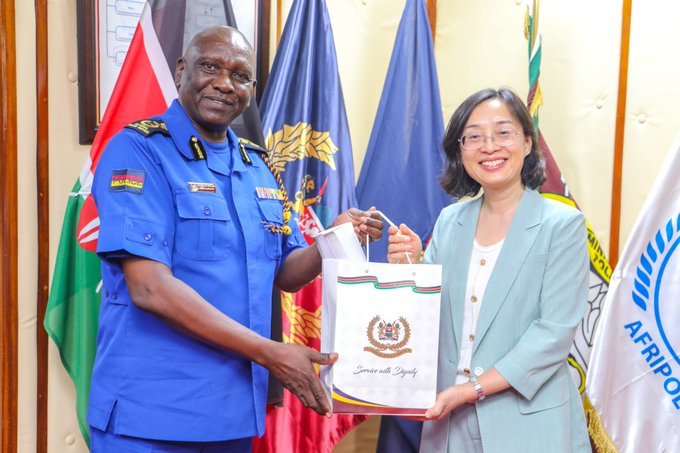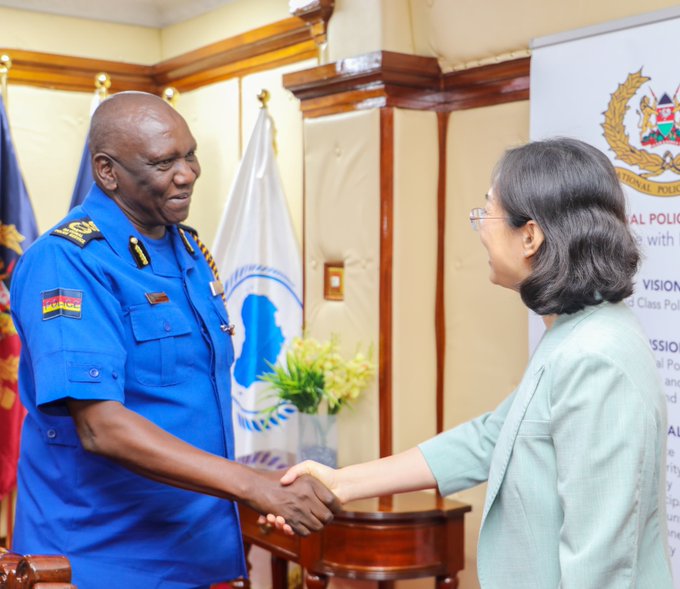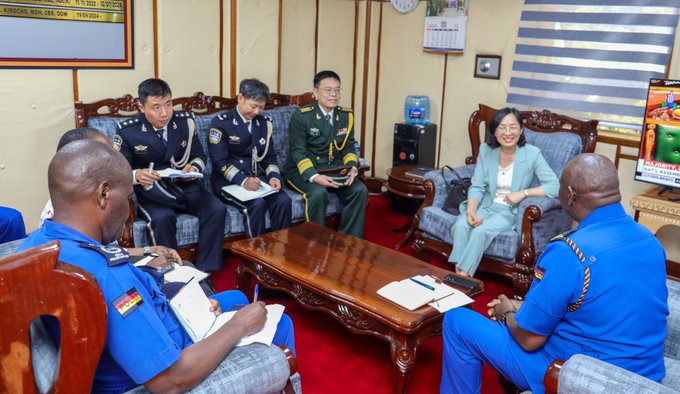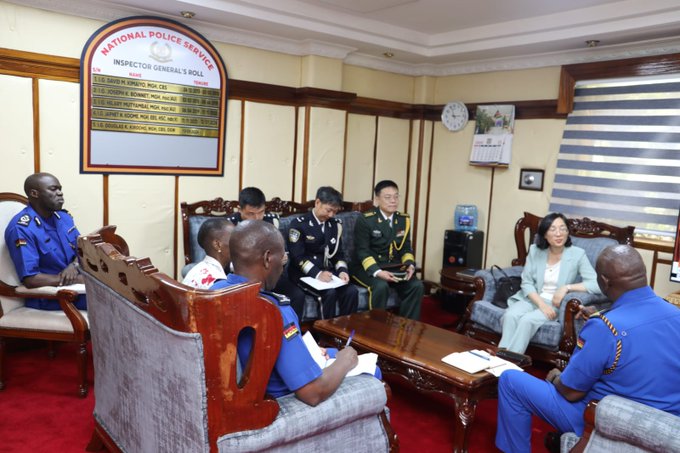NAIROBI, Kenya – Kenya and China are tightening their security collaboration, with both nations reaffirming their commitment to tackling transnational crime, boosting police training, and strengthening law enforcement capacity.
On Tuesday, Chinese Ambassador to Kenya, Guo Haiyan, met with Inspector General of the National Police Service (NPS), Douglas Kanja, at NPS Headquarters in Nairobi to discuss key areas of cooperation.
At the heart of the discussions was a shared commitment to advancing law enforcement training, capacity-building initiatives, and cross-border security collaboration through INTERPOL.
CHINESE AMBASSADOR PAYS COURTESY CALL ON IG KANJAThe Chinese Ambassador to Kenya, H.E. Ambassador Guo Haiyan, today, 11th February 2025, paid a courtesy call on the Inspector General of the National Police Service, Mr. Douglas Kanja, at NPS Headquarters, Jogoo House “A”,…
Ambassador Guo expressed appreciation for Kenya’s continued cooperation, assuring IG Kanja of China’s unwavering support in enhancing policing capabilities.
This isn’t just talk—China has actively supported Kenya’s security sector over the years, providing advanced training programs and resources aimed at modernizing policing techniques.
The meeting reinforced the importance of these initiatives, with both parties eager to scale up efforts in combating organized crime and cyber threats.
Beyond bilateral cooperation, China has played a pivotal role in supporting the Eastern Africa Police Chiefs Cooperation Organisation (EAPCCO), a regional security body working to combat cross-border crime.
IG Kanja lauded China’s contributions, emphasizing how these efforts have led to meaningful progress in intelligence-sharing and operational effectiveness across Eastern Africa.
The Kenyan delegation included Ambassador Jane Makori, Head of the Asian Desk at the Ministry of Foreign Affairs; Mathew Kutoh, Principal Assistant to the Inspector General; and NPS Spokesperson Muchiri Nyaga.
As global security challenges evolve, Kenya and China are positioning themselves as strategic partners in law enforcement and crime prevention.
This latest engagement signals a continued effort to bolster policing strategies, enhance training programs, and leverage international partnerships to keep both nations safer.
With transnational crime becoming more sophisticated, these collaborations are not just beneficial—they’re essential.









